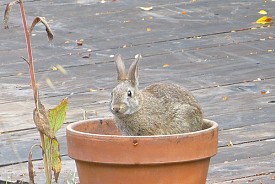Ugh, What Happened to the Compost?!
 Ah, compost. That rich, earthy smell, those happy worms, those organic materials breaking down to provide fantastic soil for nourishing your garden. You just want to stick your hands in and wiggle them around in that wonderful pile of loose, crumbly, slightly moist material, don't you?
Ah, compost. That rich, earthy smell, those happy worms, those organic materials breaking down to provide fantastic soil for nourishing your garden. You just want to stick your hands in and wiggle them around in that wonderful pile of loose, crumbly, slightly moist material, don't you?
Except...wait...recordscratch...what's that smell? What's that slimy thing? Why is it molding?
Houston landscapers, we have a problem, and it's in your compost pile. But don't panic, because troubleshooting compost is easy-peasy, and we'll have you back on track in no time. Plus, we can help you prevent future unpleasantries in what should be one of the happiest parts of your garden.
Let's start with what compost is: a great collection of organic materials that break down to release nutrients and create rich, crumbly soil you can use for building up and conditioning soil all over your garden. Compost harnesses natural processes including the work of bacteria, worms, and fungi to break down almost anything, as long as you keep your compost pile healthy and happy.
Slime
Cause: too many greens, not enough browns, or, too much water. What does this mean in plain English? You're probably adding too many grass clippings, or your compost isn't adequately protected from the weather. You need a balance of greens like grass and garden clippings and browns like dead leaves, paper, and straw. If your compost is getting slimy or too wet, you need more browns. Too dry? Add more greens, or moisten it with the hose.
Mold
Hey, mold is actually okay! It means that organisms are hard at work in your compost.
Smell
Good compost should smell, well, maybe not good exactly, but earthy and organic. If it has a pungent or rotting odor, you have too many anaerobic bacteria at work in the compost. While they will eventually break things down, they'll take the slow way around, and they'll make things super stinky. Changes are that you need to add a layer of browns to the compost to create some air pockets so good bacteria can thrive, and you may need to aerate it if it's really compacted.
This is taking forever!
If your compost is breaking down slowly, it's probably because bacteria don't have enough to work with. Add sources of nutrients like grass clippings (don't go overboard, or you'll be back in slimy, stinky territory) and bulk up the compost with browns -- a bigger compost pile insulates heat, which keeps bacteria happy. Want to jumpstart your compost? Add some red wriggler worms, and consider adding some used bunny litter, too -- the combination of straw and bunny poop is the perfect balance for lighting a fire, so to speak, under your compost pile. If you have trouble keeping the compost pile fed, hire a handyman to help you build a series of small composting containers that you can use to quickly turn over compost.
Things are growing in my compost
That will happen! Sprouts usually mean your compost isn't hot enough and discarded seeds are taking advantage of the rich nutrients to go to town. If the compost heats up, it will sterilize the seeds, making it impossible for them to sprout. You can tear out plants that are growing in the compost, or transplant them, if they're desirable! (I hauled an onion out of mine the other day...yes, my compost is not in great shape right now.)
Katie Marks writes for Networx.com.
Looking for a Pro? Call us (866) 441-6648

Landscaping Average Costs
Landscapers Experiences

Don’t Be A Goober – Hire Qualified Pros For Safe Tree Removal

Yard Clean Up Left Our Lawn Looking Fantastic



